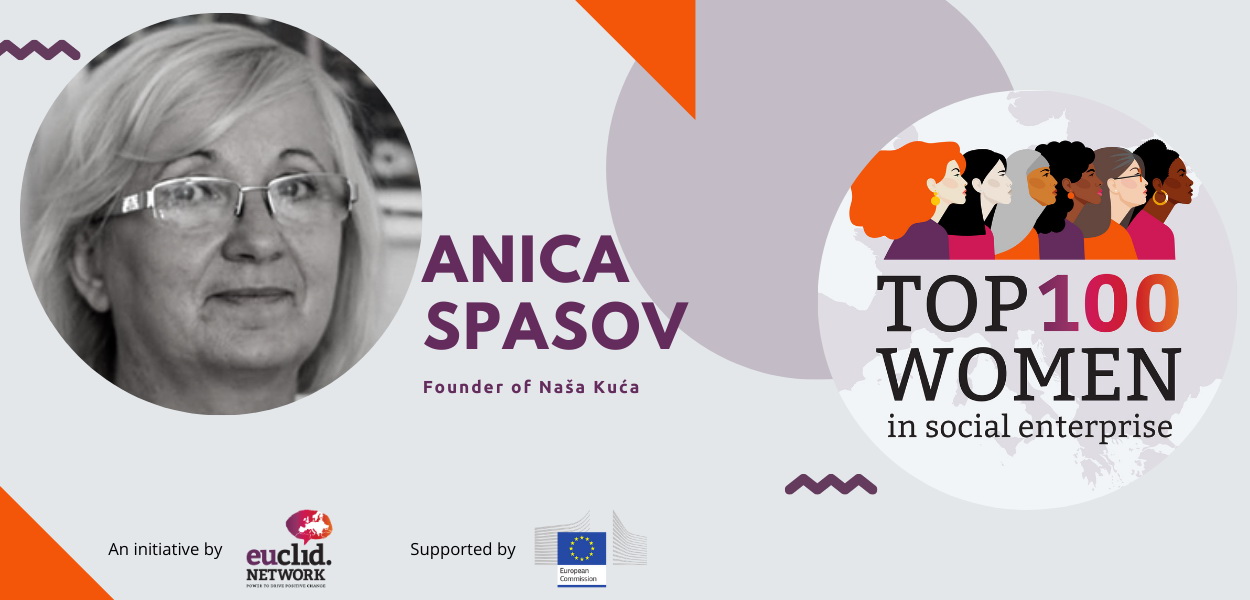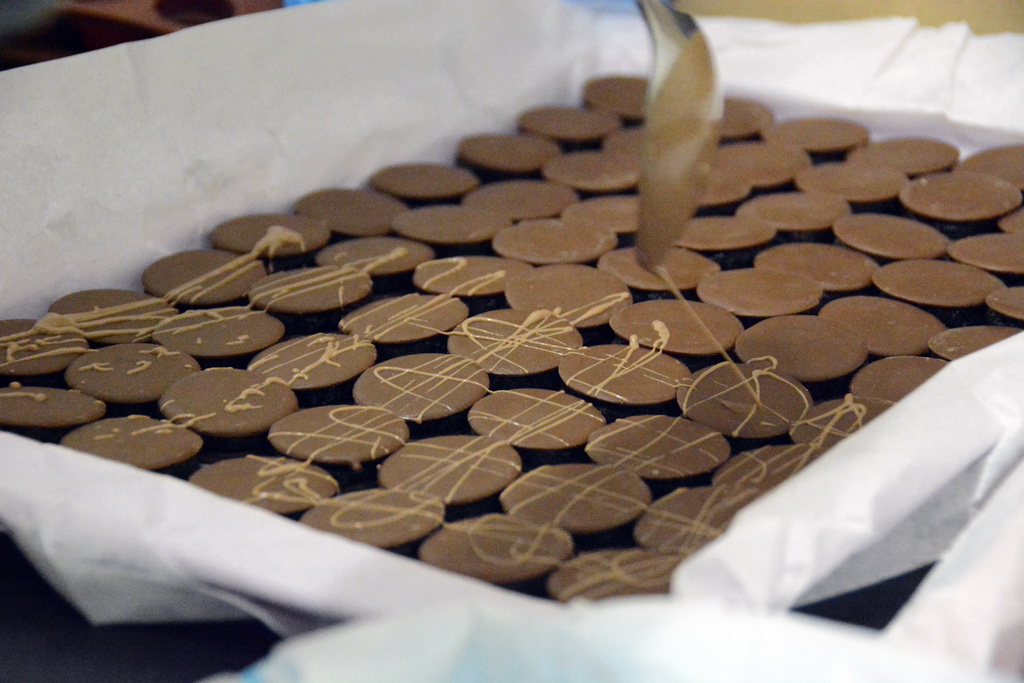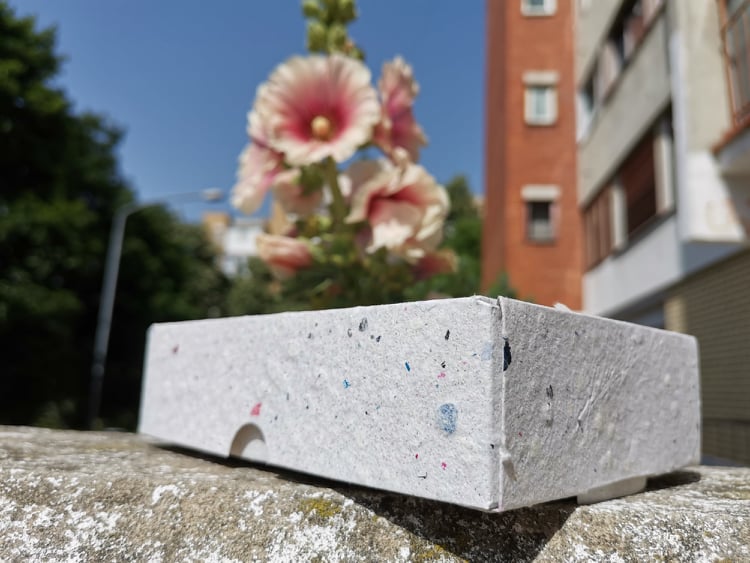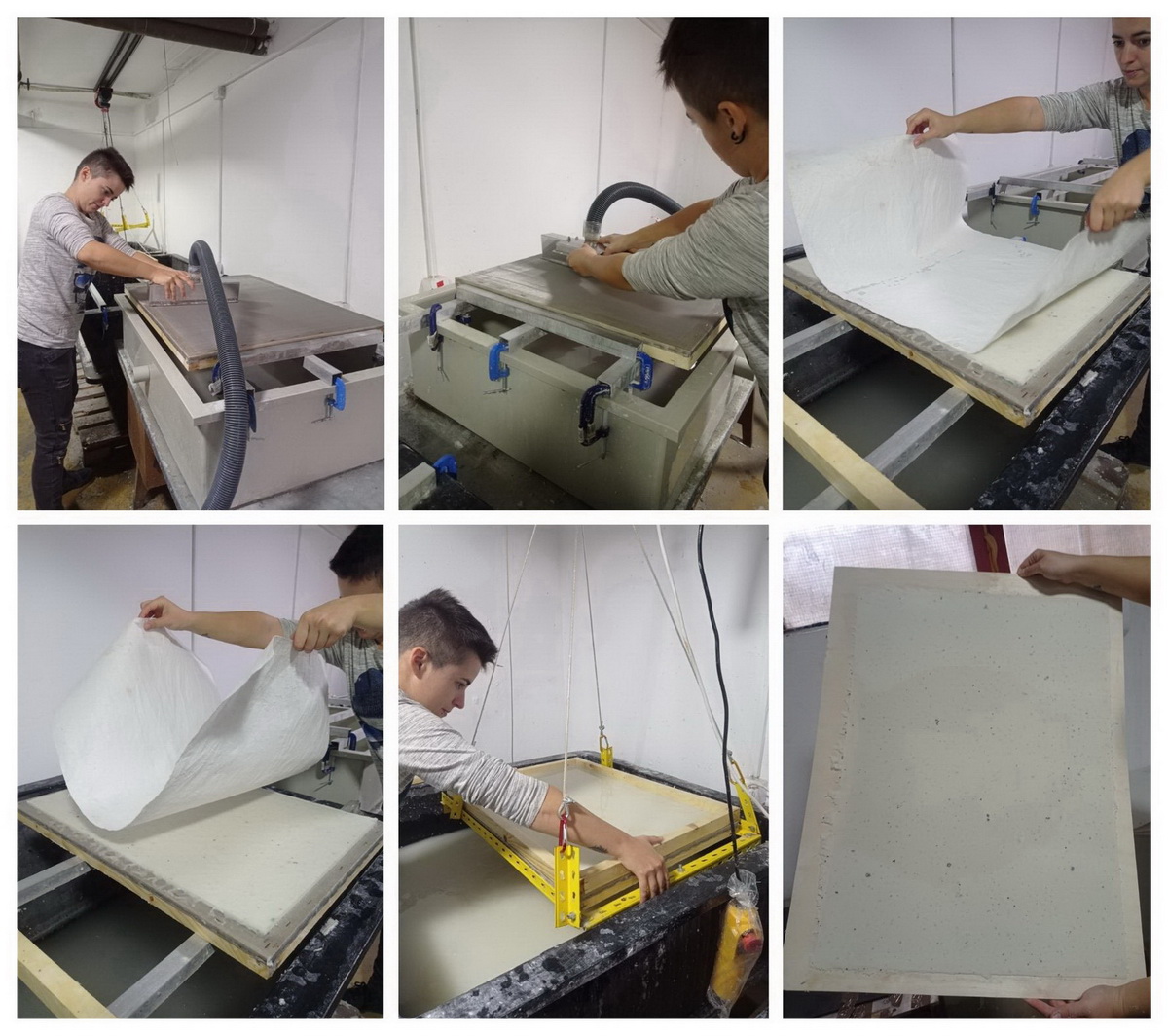 “Do you hear this? Every morning, when I enter our premises, I am greeted by this rustling…”, this is how our interlocutor Anica Spasov from the association “Naša kuća” from Belgrade describes the start of her normal workday. The rustling is the sound of paper manufacture, the only one in this part of Europe, that members of the association, persons with developmental impairments, are implementing daily on their path of creating better living conditions for their fellow citizens in similar living conditions. In today’s story, as we learn more about their products, we explore how social entrepreneurship can model behaviours, services and new perspectives.
“Do you hear this? Every morning, when I enter our premises, I am greeted by this rustling…”, this is how our interlocutor Anica Spasov from the association “Naša kuća” from Belgrade describes the start of her normal workday. The rustling is the sound of paper manufacture, the only one in this part of Europe, that members of the association, persons with developmental impairments, are implementing daily on their path of creating better living conditions for their fellow citizens in similar living conditions. In today’s story, as we learn more about their products, we explore how social entrepreneurship can model behaviours, services and new perspectives.
“First of all, our approach to people is marked by my own story, the fact that as an expert in biochemistry, instead of the profit of opening my own laboratory, I chose to build a better world for my child”, thus begins the story of Anica, the co-founder and president of the association that was created from the need of parents of children with development impairments to join together and, in addition to providing mutual support and education, create improved living conditions for persons with development impairments in our community. As the children of the parents in the association grew, the programmes also developed, growing out of children’s age programmes. The main mission remains the same – creating inclusive opportunities for social development and integration, and the same approach is applied among parents. “We started with this in 2007, and will not stop, because we believe this creates durable change”, said Anica.
 One of the work initiatives is also the development of a rulebook on volunteering that will envisage that parents take active part in the activities of their children in the organisation, to enrich their understanding and experience of challenging circumstances with new perspectives. It is precisely this approach, starting from the perspectives of those the activities are intended for, that has marked the work of this association since its start. Describing the approach to development marked by the unique nature of every story of all those who have been involved in the work of the association, Anica states: “Based on my personal experience I can say that the world of our children is beautiful, incredible and rich, and as such it inspires us to learn more about it, thus it is precisely what informs our activities”.
One of the work initiatives is also the development of a rulebook on volunteering that will envisage that parents take active part in the activities of their children in the organisation, to enrich their understanding and experience of challenging circumstances with new perspectives. It is precisely this approach, starting from the perspectives of those the activities are intended for, that has marked the work of this association since its start. Describing the approach to development marked by the unique nature of every story of all those who have been involved in the work of the association, Anica states: “Based on my personal experience I can say that the world of our children is beautiful, incredible and rich, and as such it inspires us to learn more about it, thus it is precisely what informs our activities”.
In developing the programmes, activities and new models of services, the association is today dedicated to creating working conditions for persons with development impairments. The main principles in the efforts and initiatives of their social entrepreneurship are the principles of circular economy.
 The history of the association is primarily marked by constant processes of innovation. To date, they have proven themselves in the fields of food product manufacture, packaging, and growing plants from Asia that were never present in our country before. Among the rich portfolio we note the manufacture of the chocolate-raspberry and chocolate-plum sweets, packaged in boxes also made in their own manufacturing process. Through a successful crowdfunding campaign in 2019, the association has built a unique urban hydroponic garden for herbs and vegetables. In the field of current innovation, we note their cooperation with the association of hemp growers of Serbia and work on discovering new, recycled types of paper that will further improve the living environment for us all.
The history of the association is primarily marked by constant processes of innovation. To date, they have proven themselves in the fields of food product manufacture, packaging, and growing plants from Asia that were never present in our country before. Among the rich portfolio we note the manufacture of the chocolate-raspberry and chocolate-plum sweets, packaged in boxes also made in their own manufacturing process. Through a successful crowdfunding campaign in 2019, the association has built a unique urban hydroponic garden for herbs and vegetables. In the field of current innovation, we note their cooperation with the association of hemp growers of Serbia and work on discovering new, recycled types of paper that will further improve the living environment for us all.
Today, when you hold in your hand a box, paper, agenda, invitation, or, for example, a calendar from the “Naša kuća” association, you are witness to, and the owner of a truly innovative practice based on a Japanese technology for the recycling of cigarette packs. “All this started through the implementation of a volunteering programme we are implementing in association with a Japanese organisation. During a study visit to Japan, we were introduced to manual paper manufacture, and we decided to try it ourselves”, Anica describes the inspiration for this practice. Manual paper manufacture in Japan uses mulberry trees. Known as kozo or washi paper, it represents the strongest and most durable natural paper in the world. The mulberry is used because of its specific long fibres that give paper a high resilience. The team of “Naša kuća” opted for cigarette packs since they contain a high percentage of cellulose, and are also available considering the high number of active smokers in our country. Anica and the team mention, as special impressions in this process, learning about the technology of this kind of manufacture from Japanese experts, and cooperation that continued during the pandemic caused by the corona virus, but in a virtual environment.
Since in their work and activism they primarily believe in programmes tailored to people, the introduction of new associates in manufacturing has its special methodology. Every potential associate goes through the entire manufacturing process with the work trainer, Ana Milutinović, and then decides with the association team about the segment where they feel best and most effective.
Anica describes why this approach is important. “Unlike, for example, the Netherlands, where they have special centres dedicated precisely to rehabilitation, systemic mechanisms for this circumstance are still underdeveloped here. If regression occurs, the person has very low chances of receiving another opportunity and being rehabilitated towards their previous quality of life”, says Anica, presenting precisely how high the stakes are in this kind of practice, and how vulnerable the working conditions. “Of course, there is room for mistakes, but we have to constantly communicate and monitor how our associates feel in their work roles, so that their contribution can never become a burden or opportunity for any kind of regression”. The objectives and mission of this kind of engagement are priceless – changing the outlook of persons with development impairments, diversification of their contribution to society, and elimination of boundaries. The extent to which citizens of Serbia understand the need for this type of initiative is indicated by the fact that people from across Serbia have responded to the call for donating cigarette packs, and that until recently the association could not use an entire two rooms because of the amount of collected material.
 Therefore, the end product is colourful and unique. Whether it is smooth, used for printing, or with a relief that retains traces of the cigarette packs, more in demand by arts ateliers, independent artists, etc. this paper is a product from and for, or perhaps it is better to say towards a community of the future.
Therefore, the end product is colourful and unique. Whether it is smooth, used for printing, or with a relief that retains traces of the cigarette packs, more in demand by arts ateliers, independent artists, etc. this paper is a product from and for, or perhaps it is better to say towards a community of the future.
This method of manufacture reduces the atmospheric carbon footprint, preserves forest areas and contributes to the employment of persons from the category of harder to employ persons. In Serbia, where only 17 percent of paper is recycled, this contribution is immeasurable. However, the vision of the association goes beyond these important numbers – the idea is to promote what in Japan is recognised as paper culture. Therefore, the association is already engaged in cooperation with the Faculty of Technology in Belgrade in the invention of paper for multiple uses for food delivery. The drive and inspiration for new endeavours is explained by Anica: “We, as parents, do not have the time to wait for things to become regulated. Systems are always inert, but when people join together, they can change things”.
It is precisely in this direction that Anica sees the future of this type of manufacturing. The vision is two-fold, and involves the manual manufacture of paper as hubs for systemic changes in the lives of persons with development impairments after the death of their parents, the primary caretakers. “I would like there to be ten manufacturing shops like this throughout Serbia, and for them to be examples of circular economy, small-scale manufacture, completely local, for sustainable communities”, Anica describes the vision where change will not come from Belgrade as a centre, but from smaller, local communities.
All this effort, in addition to daily improvements to the status of associations and members of society, is also dedicated to establishing a foundation that would govern the property of a person with development impairments after their parents are gone. “I want to create an answer to the question ‘What happens after us?’, which is a key question for any parent”. In current practice, after the death of the parent the property is transferred to the state, and the life of the person becomes limited to a very monotonous and often isolated routine. The idea in establishing this kind of foundation is to avoid radical changes in the life of the person, and to provide for basic, decent conditions for active living.
The roles in manual paper manufacture are active and delicate – whether dealing with preparing packs for further processing, mixing with special liquids, working with sieves, whereafter wooden frames are used to remove excess water and press the future piece of paper. It is strange to watch each piece of paper being made. After the basic processing, the paper is dried in wooden frames on a shelf similar to a bookshelf. Each piece of paper is a story in itself, containing the mission of this association and all those it gathers in its efforts to make a change. After leaving manufacture, in the hands of its new owner, the unique piece of paper is ready to become a new and different page in our histories.
 Government of the Republic of Serbia
Government of the Republic of Serbia
















 pdf [271 KB]
pdf [271 KB]
Leave a Comment